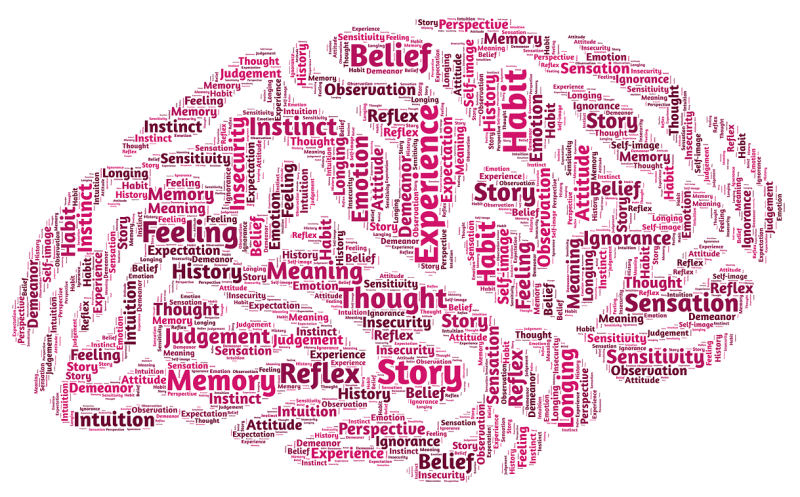Today I want to delve into the topic of intelligence and superintelligence. I have some interest in this subject, including AIs and smart, fast (high IQ) brains, and I touched on this theme in my fiction, presenting my version of superintelligent beings of various kinds.
Intelligence can be defined in many different ways and what is considered intelligent varies with culture. Generally it is one’s capacity for problem solving, creativity, planning, memory, emotional knowledge, logic, abstract thought, learning, communication and self-awareness. Rather than book smarts, it reflects a broader and deeper capability to perceive and comprehend things and figuring out what to do. It’s the ability to understand complex ideas, to adapt effectively to the environment, to learn from experience, to engage in various forms of reasoning and to think how to overcome obstacles.
Intelligence and intellect should not be seen as synonyms though their relationship in consciousness is definitely symbiotic.
Being intellectual means knowing things, having the ability to identify and analyze, memorize and categorize objective facts of the external situation: the physical characteristics and implications of whatever is perceived by the senses. Intellectual is cognitive. It’s the ability to inquire and learn.
Being intelligent implies taking those objective facts and figuring out their meaning and/or purpose, and determine the course of action to be taken.
Training the intellect does not result in intelligence (unless you rewire that brain somehow). In intelligence is the inherent capacity to feel as well as to reason. The way we feel and the strength of feeling determines how we evaluate the facts and how we respond to them.
An intelligent person has a strong mental capacity, can think quickly, can pick up on things and can also sometimes have insight that isn’t obvious to others.
So, what is it like to have an extremely high intelligence?
What could superintelligence be like?
What mental abilities an extremely intelligent mind would have?
Clearly, all this is highly speculative. Our ability to understand a superintelligence is limited to our own intelligence. And this is exactly why AI is considered a singularity event: we have no idea what truly sentient superintelligence would be like and what its effect would be, since even superintelligence wouldn’t be enough to predict the “firmware” of a superintelligence.
Is a purely organic superintelligent mind physically possible in humans?
Assuming it is so, such mind would be a product of structure similar, but more capable than, a typical human brain, and no enhancement would necessarily be required.
There certainly are numerous examples of human brain undergo significant transformations while recovering from many kinds of traumatic events, tumors, stroke, etc. This sometimes results in neural connections between portions of the brain that normally are not connected. The outcome can be a spectrum of conditions known as synesthesia. Perhaps, a superintelligent mind could be expected to possess similar set of conditions, that would result in a mind capable of achieving profound insights and more powerful levels of inspiration and creativity.

Such mind would also need to be able to logically process such tremendous stream of sensory information. To do so, it would need either to process the various streams of data arriving really fast and/or operate multiple processing centers in the brain, and combine those disparate data streams into a coherent mental construct — awareness – and then act and react.
Another thing that also comes to mind is that he/she would probably behave indistinguishable from any regular human being, having
a) an ability to make the most precise systemic analysis of any visible phenomena characterizing any human emotion and gain a unique perspective about the motivation behind it;
b) eventually collecting a massive database of those (facial expressions, body gestures, involuntary reflexes, etc.) that he/she would openly read any person he/she encounters based on their behavior, even studying a few seconds of it would tell him/her everything, and
c) possessing an uncanny ability to mimic precisely any of the above that he/she chose.
Having an ability to adjust himself/herself to any person would make it easy for him/her to manipulate people as well. Having a complete control of his/her behavior, he/she would show only what is expected of him/her at any given moment.
Yet that person would probably feel like purely intuitive and realistic at the same time, because of the faster ‘computing’, more comprehensive ‘computing’, seeing new links in data, coming to new conclusions, revolutionizing understanding by new theories, models and approaches.
It is possible that unless fed with appropriate input he/she would get bored and in certain circumstances maybe become anti-social or even go psychotic, but such mind would certainly flourish in an environment that would nourish the ever-hunger. Hunger for knowledge, hunger for intelligent and empathetic interaction, an intense craving for near-constant challenges with which to engage its full range of capacity.
Such a mind would benefit from possessing an eidetic memory, either natural or technologically enhanced. Yet at the same time the mind would need to have an option to selectively disengage from all that repository of information to avoid being overwhelmed and have a calm reflection on things contemplated, and to relax and/or sleep.
As I stated earlier in this post, unlimited intelligence is not the same as having real-time data stream on which someone makes real time decisions – that would be the intellect, unless backed by high intelligence. Intelligence also doesn’t mean (nor does it require) that the person is free of moral, or free of prejudice and dogma. It still can be any combination of these things, which is a concept science fiction loves (e.g. the Matrix has intelligent machines that have no morality other than their preservation; or morally good robots that are missing some emotional understanding of things, like Data).
I tend to think that superintelligent being could be a gentle, extraordinarily empathetic person/entity, because truly brilliant people have shown great compassion in both philosophical and interpersonal basis. There are plenty of people who interact with those whose intelligence is a fraction of their own (parents & kindergarten teachers, special needs educators, etc.), and they develop wisdom, compassion and the ability to healthily interact with those people. Superintelligent person/entity could be a truly people’s person, a humble person (they would be far too intelligent to let us see all of their abilities let alone be arrogant about it), who would be pleased to do plenty of good for humanity. Unfortunately, history had also seen destruction of bright people at the hands of fellow humans.
All this leads us to one more question. What a superbright mind might do with his/her time? I think that it would engage itself in solving a vast variety of problems in an ocean of scientific and artistic fields, and hopefully with a healthy dose of ethics and morale.





